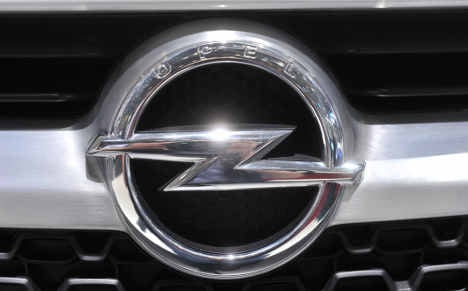“As a global automotive company, GM needs a strong presence in Europe, in terms of design and development as well as manufacturing and sales,” GM chairman and chief executive Dan Akerson said at Opel headquarters in Rüsselsheim near Frankfurt late on Wednesday.
“Opel is a key to our success and enjoys its parent company’s full support,” he added.
The investment aimed to allow Opel and Vauxhall to return to growth in the medium term and improve Opel’s market share in Europe, currently at just over six percent, he said.
It would also permit Opel to launch 23 new models and 13 new power train systems by 2016.
Opel is “on the right track” in its restructuring plan as well as its aim to balance its books by mid-decade, Akerson told gathered Opel chiefs, local politicians and workers.
The German carmaker has been making losses for years as it has been slow to react to the crisis in demand for cars in Europe, by far its biggest market, and GM has ordered Opel’s management to prescribe draconian cost-cutting.
The 10-year turnaround plan, dubbed DRIVE!2022, which included a wage freeze, the giving up of some fringe benefits and other cost-saving measures, was approved at the end of February by three of Opel’s sites in Germany but not at its north-western Bochum factory.
Last month Opel said it would press ahead with plans to phase out auto production at Bochum at the end of 2014, earlier than its planned end-2016 date.
GM estimates it stands to lose more than $1.5 billion on its European operations this year and wants to steer Opel and Vauxhall back to profit by 2015.
“Those cars can be sold outside Europe if it makes sense,” Akerson said, amid insistent calls by workers who have reproached the US giant for its strategy of confining sales to Europe for too long.
Akerson, who continues his visit in Germany by meeting Chancellor Angela Merkel in Berlin on Thursday, added it was “a time of challenge but also of excitement and optimism”.
Standing alongside him, Opel’s new chief executive Karl-Thomas Neumann vowed to return the troubled German carmaker to strength and its “former glory”, commenting “Opel is back”.
Opel and Vauxhall are heavily dependent on the European market where industry-wide sales of passenger cars fell 8.2 percent in 2012, according to data published by the European automobile makers’ association.
Opel produces its Zafira model in Bochum. It has three other sites in Germany – in Eisenach in eastern Germany, which builds the Corsa and Adam models, a components factory in Kaiserslautern in the south west and the core production plant at Ruesselsheim, near Frankfurt.
Earlier on Wednesday the head of German carmaker Daimler said that European demand had been weaker than expected in early 2013, paving the way for a possible lowering of the company’s annual targets.
AFP/mb



 Please whitelist us to continue reading.
Please whitelist us to continue reading.
Member comments